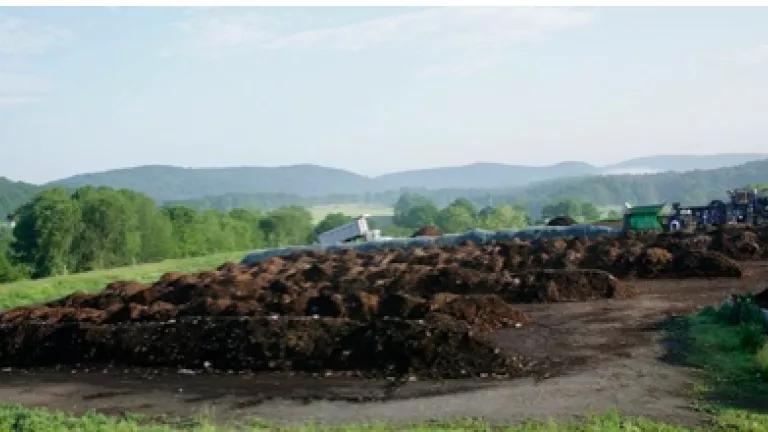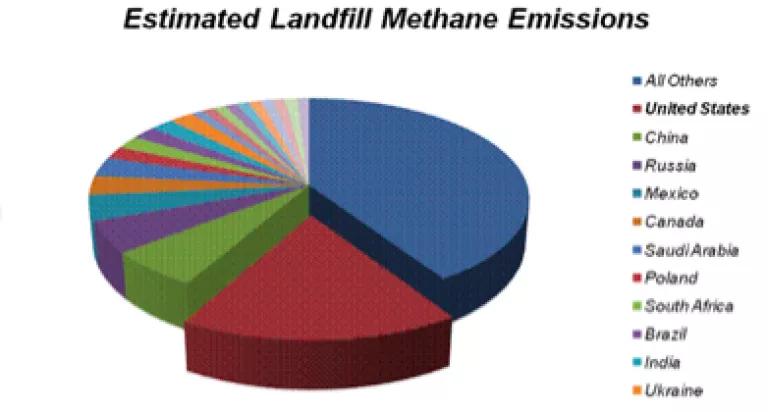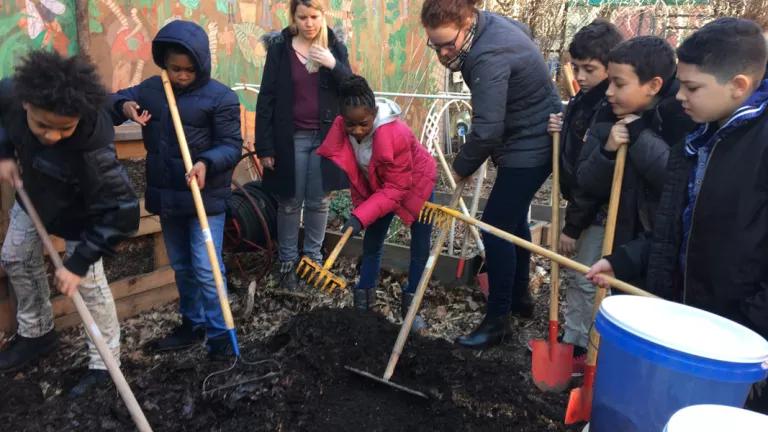
The administration of New York City Mayor Bill de Blasio is today unveiling a new proposal that will require the largest generators of food wastes here to arrange for composting of those materials, rather than sending them to landfills or incinerators.
The new program is designed to cut methane emissions from landfills and make waste disposal practices more sustainable in the nation's largest city.
It will apply to approximately 350 of the biggest food generators in the city, including hotels with 150 or more rooms, arenas and stadiums with at least 15,000 seats, as well as large-volume food manufacturers and food wholesalers.
New York's largest food waste generators will soon be required to send their organics to composting facilities under a new sustainability initiative being advanced by Mayor Bill de Blasio.
A 2013 New York City law, originally proposed by former Mayor Michael Bloomberg, set the stage for today's action.
The statute was intended to solve a Catch-22 problem that has long confronted city officials - you can't have a successful, wide-scale composting program for food scraps and yard waste without having nearby composting facilities that will accept such materials; and such facilities won't be built or expanded until the business community is assured that there is a reliable supply of these organics, which will be available to serve as their feedstock.
To that end, the 2013 law directed the Sanitation Commissioner to evaluate the capacity of nearby facilities that would accept organics like food scraps and yard waste for composting (or for similarly sustainable disposal processes like anaerobic digestion).
Then, if the Commissioner found that there was sufficient capacity and that the cost of such processing was competitive with landfilling or incineration, the Commissioner was to adopt a rule requiring all food generators, or a subset of such generators, to insure that their food wastes were composted (or handled in another sustainable manner approved by the Department).
Consistent with the 2013 law, Commissioner Kathryn Garcia and her staff spent the past year analyzing the capacity of food waste processors within 100 miles of New York City to accept organics from in-city food establishments for composting.
The Commissioner's analysis identified between 100,000 and 125,000 tons per year of mostly privately owned capacity in the region for processing the city's commercial food waste. And the 350 waste generators who will fall into the first subset of waste generators produce approximately 50,000 tons per year of food waste.
In total, the city's commercial establishments generate roughly one million tons a year of organic waste. So today's action will need to be followed up with more expansive directives over the next several years, so that the program ultimately includes all significant food waste generators in New York City. This is apparently what the de Blasio administration plans to do. The Mayor's recently released OneNYC sustainability plan has adopted an ambitious goal of "zero waste," which aims to reduce by 90 per cent the amount of New York City trash sent to landfills by 2030.
(Today's announcement deals with food waste generated by commercial establishments in New York City; this waste is collected by private carters. The Sanitation Department is already conducting a separate pilot project that collects food waste for composting from over 100,000 households and over 700 public schools across the city.)
NRDC welcomes today's announcement. We believe it sends a clear signal to the business community that New York City's commitment to composting and more sustainable waste handling is here to stay and that this policy determination presents new investment opportunities for composting and related facilities.
Additionally, the new de Blasio plan can become a saber in the fight to curb climate-altering methane emissions from landfills. According to the U.S. Environmental Protection Agency, landfill gas emissions are the third largest source of methane emissions in the country, and organics like food waste which produce methane when they break down in landfills are the major contributor to this problem.
Today's proposal must still go through a formal rule-making proposal this fall before it is adopted in final form. And NRDC will be reviewing that proposal with great care, as well as commenting on the program details, to insure that the administration's admirable sustainability objectives will be fully incorporated into the final rule.

Landfills are the third leading source of climate-altering methane emissions in the United States, according to the U.S. EPA. And the U.S. has greater landfill methane emissions than any other country, as illustrated above. Requiring food waste generators to send their organics to composting facilities, as New York City is beginning to do, can help curb these emissions.
On the eve of July 4th, the de Blasio administration's new commercial composting program brings New York City one step closer to declaring its independence from environmentally troublesome, methane-generating, climate-altering landfills.




